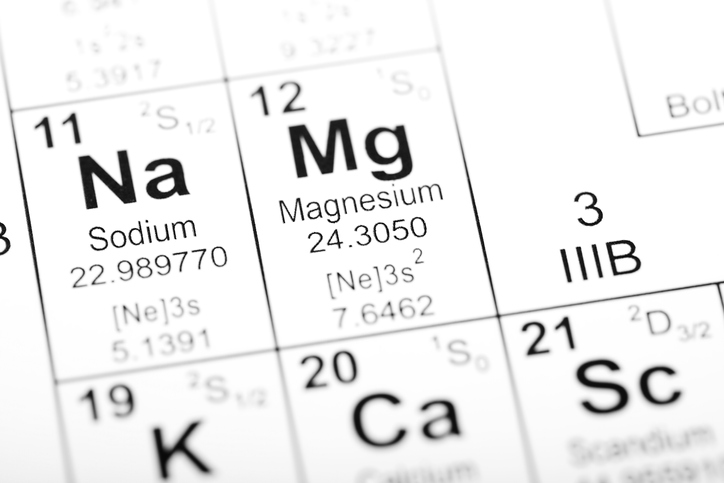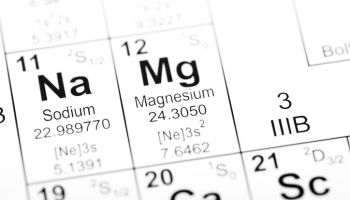
Source: davidf / Getty
Let’s talk about Magnesium. We’ve all heard of it…it’s an element we know we need, yet most of us are deficient. Holly Haze explains why, “We used to be able to get this mineral in good, clean water; however, over time, city water systems have filtered it out. In addition, many people have been going gluten and/or grain free, so we’ve lost a source of magnesium with that omission.”
Since magnesium is found in wheat germ and whole grains, some people with digestive disorders such as Crohn’s Disease or Celiac are at increased risk of magnesium deficiency. Holly adds, “you can also find magnesium in foods such as seeds, beans, raw spinach and almonds”.
Magnesium is essential in activating enzymes, regulating calcium levels in a cell, forming synapses, breaking down amyloid plaque, and other activities. Patients with Alzheimer’s usually present with a lower cerebrospinal levels of magnesium. Magnesium also helps to sensitize cells to the effect of insulin, cutting down on sugar in the blood and reducing inflammation. Magnesium helps us relax, supporting sleep function and the way we handle stress. It can also help with constipation. Magnesium is the third most important mineral in our bones following calcium and phosphorus.
Magnesium is involved in over 300 reactions in the body. It is essential for nerve functions and messaging, it is necessary for the heart to function and it is key mineral for our immunity. Holly has some advise on the KIND of magnesium you may need. “Before you run off and get a bottle of this goodness, you may need to know that not all magnesium is the same. You may want to look at which form of magnesium you are taking! For YEARS I was taking an over-the-counter generic magnesium capsule not even knowing which form it was. Now I am taking the right one for me. I take it (glycerinate) at night to help me relax and sleep. It would be best to consult your physician to hone in on the one that you need.”
Let’s break them down for you to help you narrow down the right one for your needs.
Magnesium Oxide has poor absorption and acts as a laxative.
Magnesium Citrate has good absorption aiding as a laxative and helping with kidney stones.
Magnesium Glycinate has good absorption and aids in relaxation, pain, anxiety and sleep.
Magnesium Malate has good absorption and good for muscle fatigue and symptoms of fibromyalgia.
Magnesium Orotate has good absorption and helps your heart health and helps prevent heart failure.
Magnesium L-Theronate has good absorption and assists with cognitive function and memory. (this one is good for preventing and helping with Alzheimer’s).
Magnesium Sulfate is absorbed transdermally or via IV. Many use this in the form of epsom salts.
Take away” Magnesium is a mineral that’s essential for energy production, muscle and nerve function, bone strength, and a whole lot of other things that keep us happy and healthy. Go get you some!
















